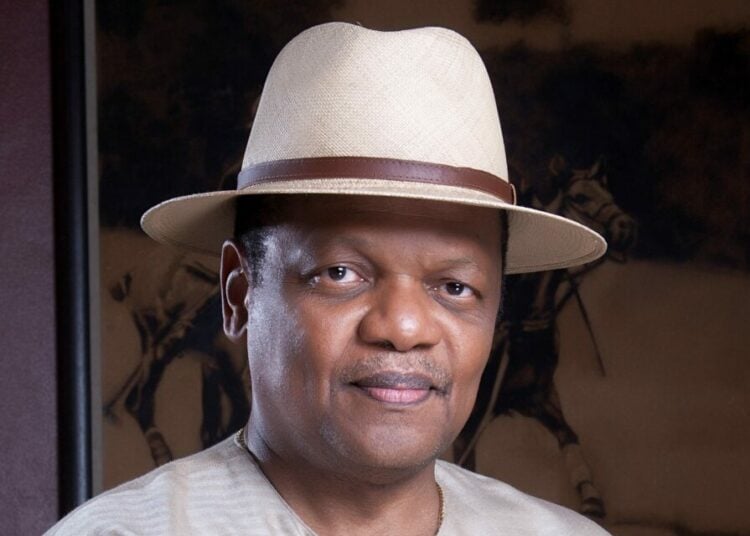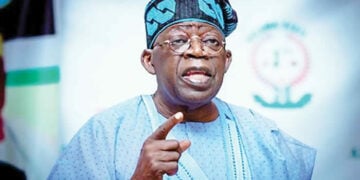The founder of Stanbic IBTC Bank, Mr. Atedo Peterside, has declared that a majority of Nigerians had lost confidence in the Independent National Electoral Commission (INEC).
Speaking on Channels Television’s current affairs programme, ‘Politics Today’ on Monday night, Peterside, who is also the President of ANAP Foundation, warned that the people might resort to self-help in future elections if nothing was done to restore trust in the electoral system.
While commenting on the recent change of leadership at INEC with the appointment of Professor Joash Amupitan to replace Professor Mahmood Yakubu, he said the commission did not leave up to expectation.
“I will never say never, but the INEC that was led by Mahmood Yakubu was a national disgrace. You just have to go on their IReV. If you have time, I will take you there myself and show you result sheets they upload — mutilated, sometimes with figures changed, and in some cases, they even forget to change the words,” Peterside stated.
He also came hard on the Nigerian judiciary for failing to live up to the required standard and called for electoral reforms that would shift the burden of proof to INEC.
“I heard former Governor Dickson saying in the Senate that we have to amend the Electoral Act in some important way,” Peterside said. “See, this is where our judiciary has not lived up to the required standards. I agree with Senator Dickson that the burden of proof should shift to INEC.
“You can’t allow a situation where INEC can do anything, bring out rubbish results, mutilated and everything, and then argue that it’s for the victim to prove that what they’ve done is wrong, when even a blind man can see that what they’ve done is wrong,” he noted.
Peterside also said that Nigeria’s security challenges cannot be solved by merely changing Service Chiefs or appointing new heads of military formations.
According to him, Nigeria needed to adopt a multi-layered policing system that includes state and community policing to effectively tackle insecurity.
“The truth is that without state policing and community policing, it’s very difficult to deploy somebody from Adamawa or Zamfara to Akwa Ibom and expect him to resolve local crime. All over the world, the reason why policing is local is because the policeman knows his environment and the people in it. You cannot do proper policing without locals,” Peterside said.
Peterside noted that insecurity in Nigeria has worsened despite repeated changes in security leadership, insisting that real reforms must address structural and systemic problems rather than depend on leadership reshuffles.
“I’m always skeptical about fundamental changes simply by changing personnel at the top. That’s not unique to the military alone. There’s more to solving an endemic problem than changing one man. Some problems are systemic,” he added.
Citing personal experiences, Peterside questioned the government’s claims of improvement in national security, saying citizens still travel in fear across parts of the country.
“The number of places you can conveniently drive from one town to another is shrinking all the time,” he said.
On the economy, the business leader acknowledged that some early reforms by the current administration were necessary but criticised the absence of targeted measures to cushion the impact on poor Nigerians.
“Yes, we deregulated fuel prices and unified the exchange rate, but what followed was mass poverty. When I go to my village, people tell me they didn’t receive a kobo from the government. So I keep wondering—who are they making these payments to?,” he said.
Peterside urged the government to use the National Identity Number (NIN) system to implement direct cash transfers to vulnerable citizens, describing it as a more transparent and effective form of support.
“With the national ID card, we can make scientific and traceable payments to the poorest Nigerians. Even if it’s N10,000 or N15,000 monthly, it’s better than zero. For someone unemployed, that can be a starting point to escape poverty,” he said.
Peterside further condemned the purchase of luxury vehicles for lawmakers amid economic hardship, saying such insensitivity undermines the sacrifices expected from citizens.
“Even in 2012, when Nigeria was in an economic crisis, the National Assembly members got Toyota Camry cars. Now, in a worse economic situation, they are buying luxury SUVs,” he lamented.
Peterside, therefore, called for sincerity and accountability in governance, emphasising that Nigeria’s progress depends on structural reforms that balance economic policy with social welfare and genuine security restructuring.





